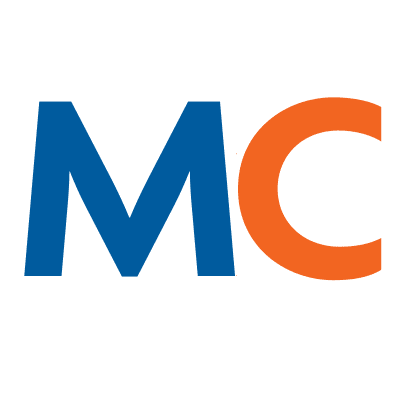- Solutions
- Solutions
- Home Health
- Hospice
- Life Plan Community
- Palliative Care
- Private Duty
- Senior Living
- Skilled Nursing
- Skilled Nursing
- Skilled Nursing Software
- Advanced Insights
- Customer relationship management
- Data and analytics
- Financial & operations management
- Marketing
- Nutrition management
- Referral management
- Regulatory compliance
- Retail management
- Resident engagement
- Revenue cycle management
- Skilled nursing interoperability
- Partners
- Blogs
- Resources
- About

How the right EHR can help agencies overcome scalability challenges
The home health industry has seen a wave of consolidation events over the past few years, with the number of freestanding agencies steadily decreasing yearly. The agencies expanding their businesses through M&As often face growth challenges and risks as they scale up their operations, on top of facing several headwinds — inflation-induced financial pressures and labor shortages. Hospice and palliative care are also going through a rapid growth phase of 7% to 8% annually, with the market expected to nearly double by 2030. Therefore, both home health and hospice organizations need EHR systems that pose no obstacles to growth, helping them to grow their business.
EHR performance and scale
Scalable EHR systems are designed with growth in mind. Those systems embrace modern cloud technologies and are created using scalability-focused architectural principles and patterns. Such EHR products usually run on an underlying SaaS hosting platform capable of scaling the compute, network, and data storage resources as the volume of transactions increases. As a result, scalable EHR systems will not suffer performance degradation when the number of users rapidly increases. Whether organizations want to prepare for expansion, including the geographical, SaaS EHR platforms remove the need for additional hardware and new server locations to support that growth.
Are your technology solutions ready to support your business expansion? Here are a few ways SaaS technology can give your EHR the scalability needed for long-term growth.
Privacy and security
As organizations grow, the number of employees and PHI volume also grow — so do the concerns about privacy and security. Hiring IT staff to manage security and safeguard data is a must for organizations that self-host their EHR. On the other hand, with reliable and scalable SaaS products, there’s no need to budget for security expertise. PHI protection is a top priority of ResMed SaaS EHR platforms.
Regulatory compliance
A scalable EHR system will take on the ownership for meeting federal and state-level regulatory compliance — the foundation of home health and hospice. As payment models evolve and shift to value-based, home health and hospice providers need an EHR that scales to comply with new regulatory demands. Thus, as organizations grow, a scalable EHR can carry the heavy load of regulation and compliance.
Interoperability
Scalable EHRs are designed to support interoperability standards, allowing plug-and-play integration with the third-party software helping to expand the product’s value and advance the functionality and organizational needs quickly. Interoperable EHR systems will efficiently and promptly take in new patients from referral providers via various eReferral platforms or with tight integration with the hospital EHR systems. In addition, such systems are designed to transmit additional data and documentation electronically, such as signed physician orders, visit notes, patient forms, education information, and more. Interoperability positively impacts referral relationships, ultimately helping to grow the organization’s business and supporting that growth with more connected care.
Workflow efficiencies
As organizations grow, so does the operational and administrative overhead. Scalable EHRs are designed to help expand the organization efficiently, centralizing the workflows for reduced demands on back-office staff. Reductions include efficient patient intake and scheduling, automated order compliance, centralized OASIS scrubbing, user management, and other administrative tasks — helping to reduce the overall labor.
Enterprise-level analytics
Reliable and scalable analytics can provide trend reporting, predictive data, and other metrics across branches to help grow geographically and give insight into opportunities for improvement.
When clinicians have tools to spend less time documenting, they can provide more visits in a day and become more productive by reducing the need for back office staff to validate their work. As a result, the organization can do more with less staff — ultimately creating opportunities and support for growth.
Request a demo to see how MatrixCare can support your organization’s growth and help you scale.
See what MatrixCare can do for you
MatrixCare
MatrixCare provides an extensive range of software solutions and services purpose-built for out-of-hospital care settings. As the multiyear winner of the Best in KLAS award for Long-Term Care Software and Home Health and Hospice EMR, MatrixCare is trusted by thousands of facility-based and home-based care organizations to improve provider efficiencies and promote a better quality of life for the people they serve. As an industry leader in interoperability, MatrixCare helps providers connect and collaborate across the care continuum to optimize outcomes and successfully manage risk in out-of-hospital care delivery.
MatrixCare is a wholly-owned subsidiary of ResMed (NYSE: RMD, ASX: RMD). To learn more, visit matrixcare.com and follow @MatrixCare on X
Related Posts


See MatrixCare in action
Start by having a call with one of our experts to see our platform in action.
MatrixCare offers industry-leading software solutions. Thousands of facility-based and home-based care organizations trust us to help them improve efficiency and provide exceptional care.
© 2024 MatrixCare is a registered trademark of MatrixCare. All rights reserved.






